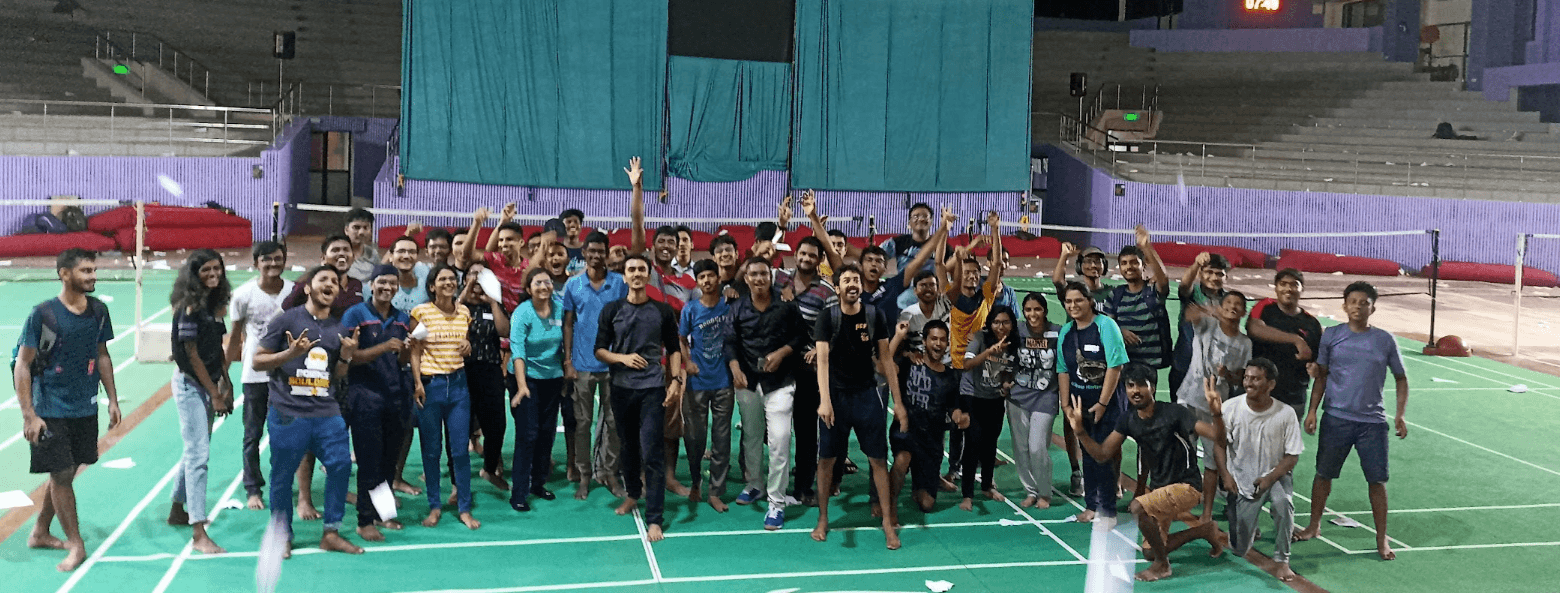TechSoc IIT Madras was one of the most stressful and fulfilling decisions I made in my last year in institute. We upscaled the tech culture at the institute through organizing 20+ competitions, 15+ guest lectures - resulting in 22
products, events impacting 2000+ students. I’d personally recommend this to any person who shares these 2 traits -
- passion of driving a solid tech culture at our university
- willingness to test their limits to stand for something bigger than themselves
I’ll talk mainly about 6 things about my tenure as TechSoc Head from 2022 to 2023, where we captured the engagement of over 2000+ students, having conducted 15+ guest lectures and 20+ technical events.
- The Initiatives
- The Experience
- The Growth
- The De-merits
- A crazy story
- Cool stuff I got to do
FYI - Although this blog is all motivational stuff, we failed a tonne of times, but we did end up making people smile and make amazing things - and that's what it's all about.
The initiatives
My approach was and always has been - invest in the team, then invest in the customer and then invest in the future. The fun part about this 3 step process is the more you invest in the earlier phases, you're actually also investing well enough in the latter parts.
Investing in the team
The most important part was always that each member on the team felt proud and challenged and happy about the work we did. They had to grow, they had to be happy and challenge their own problem solving skills - else it wasn't worth it.
So here are a couple things I tried and liked:
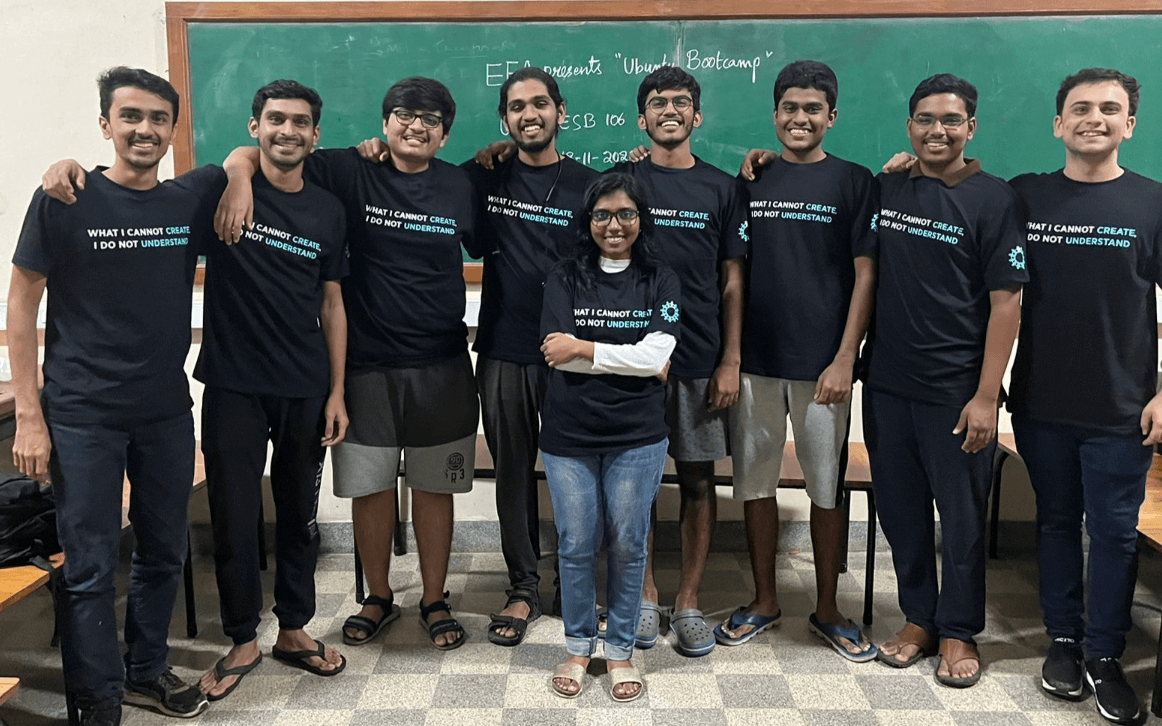
A training period
Spent atleast a month for new joinees to get used to "entrepreneurial activities" - like studying companies, making presentations and pitching, drafting detailed reports, running collaborative projects, cold emailing, corporate relations. This helped the team learn a lot in a short period of time and gain confidence.
Here's a syllabus if it helps - link
But yeah, if you want top-quality, hard-working, smart people actually working with you on your vision - gotta train your army to fight. You can start by defining the vision of your team, and what culture you want to carry into this.
Meeting structuring
College is a complex time with lotta priorities, commitments and spontaneous plans. It is important to have a definite meeting structure so that you stay consistent and add a punctuality aspect to respect everyone's time.
- If anyone came late, they bought ice-cream to everyone who came before.
- If the meeting didn't end on time, then I would buy ice-cream for everyone in the meeting
- Every meeting had a document and actionables that people could take back so we always met with a direction, discussed agenda as per time and walked away with usable data and direction.
This structure is something I learned from Sharavanakumar at Khatabook and to this day, I'm grateful for it.
OKRs
OKRs - helping break down the overall vision into just 3 things each of the 18 of us had to get right each week - while working with each other. We were 18 disruptors - 54 things per week, pointing in 1 direction - helped us grow like crazy.
Team Happiness and Culture
At TechSoc, you always get a birthday cake. If you're in person - team folks even show up for your celebration at 12AM. We ensured that in our weekly retros, we had shoutouts for everyone who did great work in that week. Every event we saved on, the surplus would go back to team treats and gifting goodies. We were transparent about our money and trusted each other with it. Apart from that, we'd enjoy late night sessions on the lawns playing games (Mafia, Truth and Dare, "Albatross") or singing or sharing stories about ourselves.
Investing in the experience
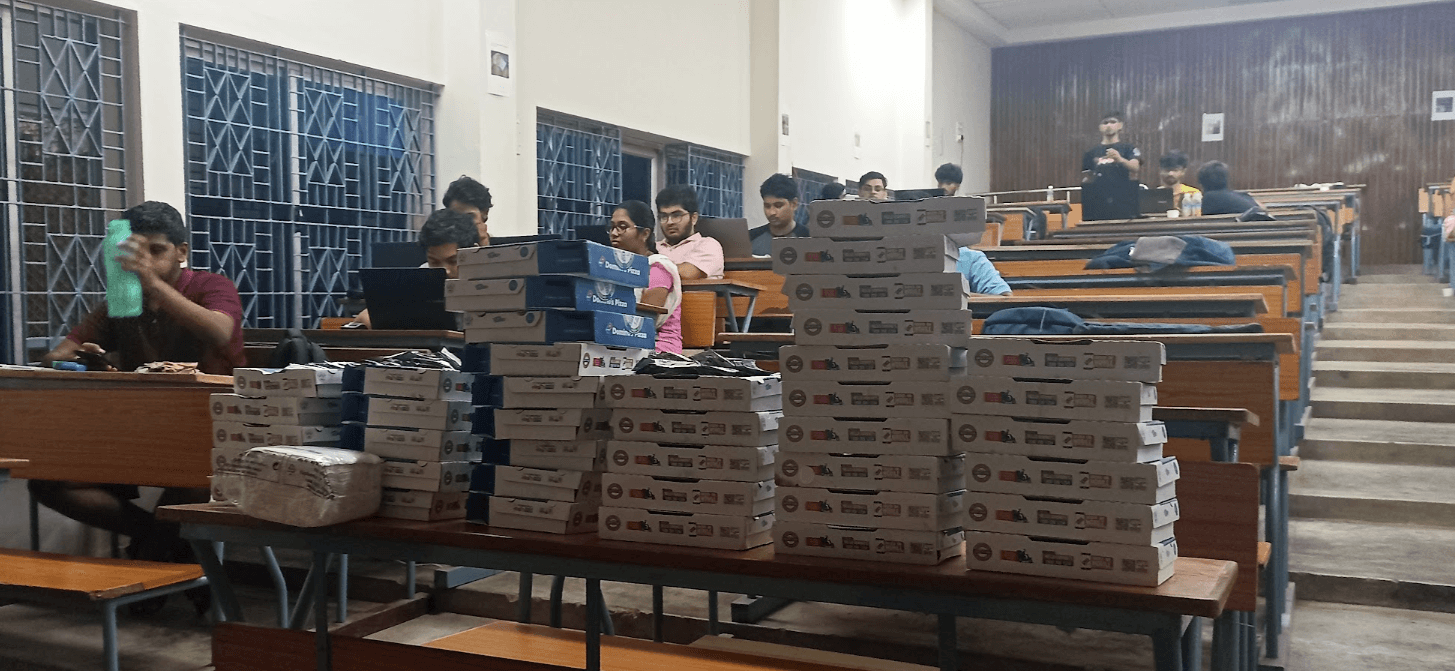
Every event at TechSoc was a collaboration with another technical team on campus. And they're usually busy with projects but do want the publicity on campus. Every meeting we had with them, went as follows:
- Why are we doing this event? What do we want to takeback from it
- What does the event do? What's the best date and why?
- How will the overall flow of conducting look like?
- How do we market it?
- What do we need (human resources and props) to run it successfully?
- What are some loopholes we should consider when organizing this?
- Metrics tracking and SWOT analysis
All this information would then be captured in a document - sample. This document would contain all the plan, the necessary links and people collaborating on it.
On ground, here are some values we ensured each time we conducted the event
- Participant is god. If it means you're cycling with one hand and doing repeated samosa deliveries, sticking posters everywhere or ensuring that they have water - you gotta do it.
- TechSoc never gives up. No matter how much things screw-up. And they did, like, all the time. Once there was an internet issue in a seminar we were streaming while a billion dollar CEO waited on the other end. But we recouped and did the damn thing
- After-event work happens super fast. Everything from prizes, to score updation, to social media, website updating and everything.
Investing in the big picture
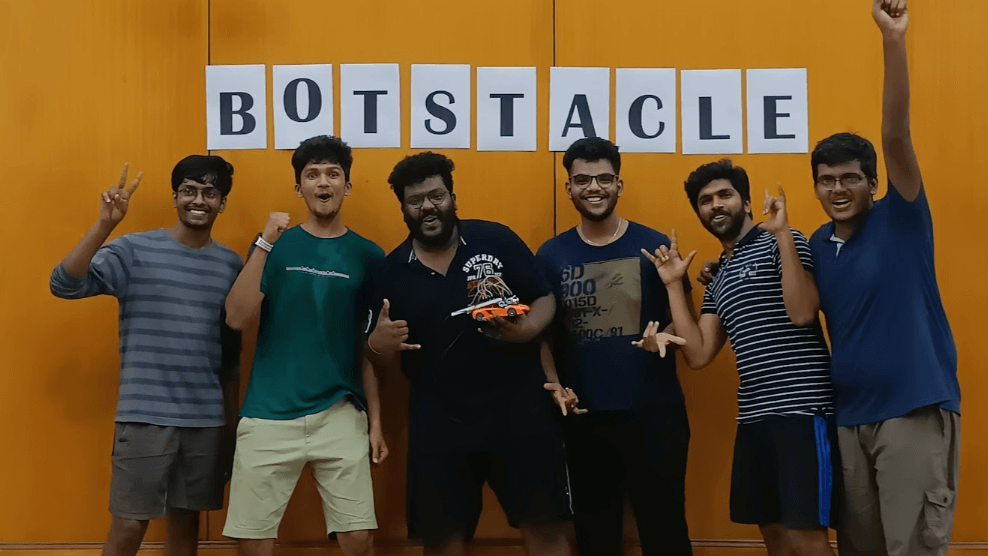
"Always build on top of your previous work". A lot of what we did at TechSoc compounded in on itself over time. We started with arguing and justfying INR 7000 rupee budgets for paper plane events and in 1 year got to INR 1.5 lakh AI hackathons. The way to do this was:
- Update the fricking website - ensure that the overall presence of TechSoc was always up to date with everything that we had achieved so other people could review. With time, as we did more things, we became more awesome and it kept compounding with time. This helped get external attention and investment as well.
- Build extensive documentation - Every document, going in, with time, created such a strong clarity and database - everything from important contacts to event documents and plans and costs and the whole thing - just mind-blowing. It helped a lot of people collaborate and introspect and evolve work with time.
- Align everyone. Repeatedly - Every meeting, or party, or failure point - it was super important to just tell everyone what we stand for.
The Experience
Technical Society is a relatively growing student body and so the job is obviously hard. The place my team had to start from was how to even get 5 people to show up for an offline event when we were reeling back from the pandemic. Key points of my experience are:
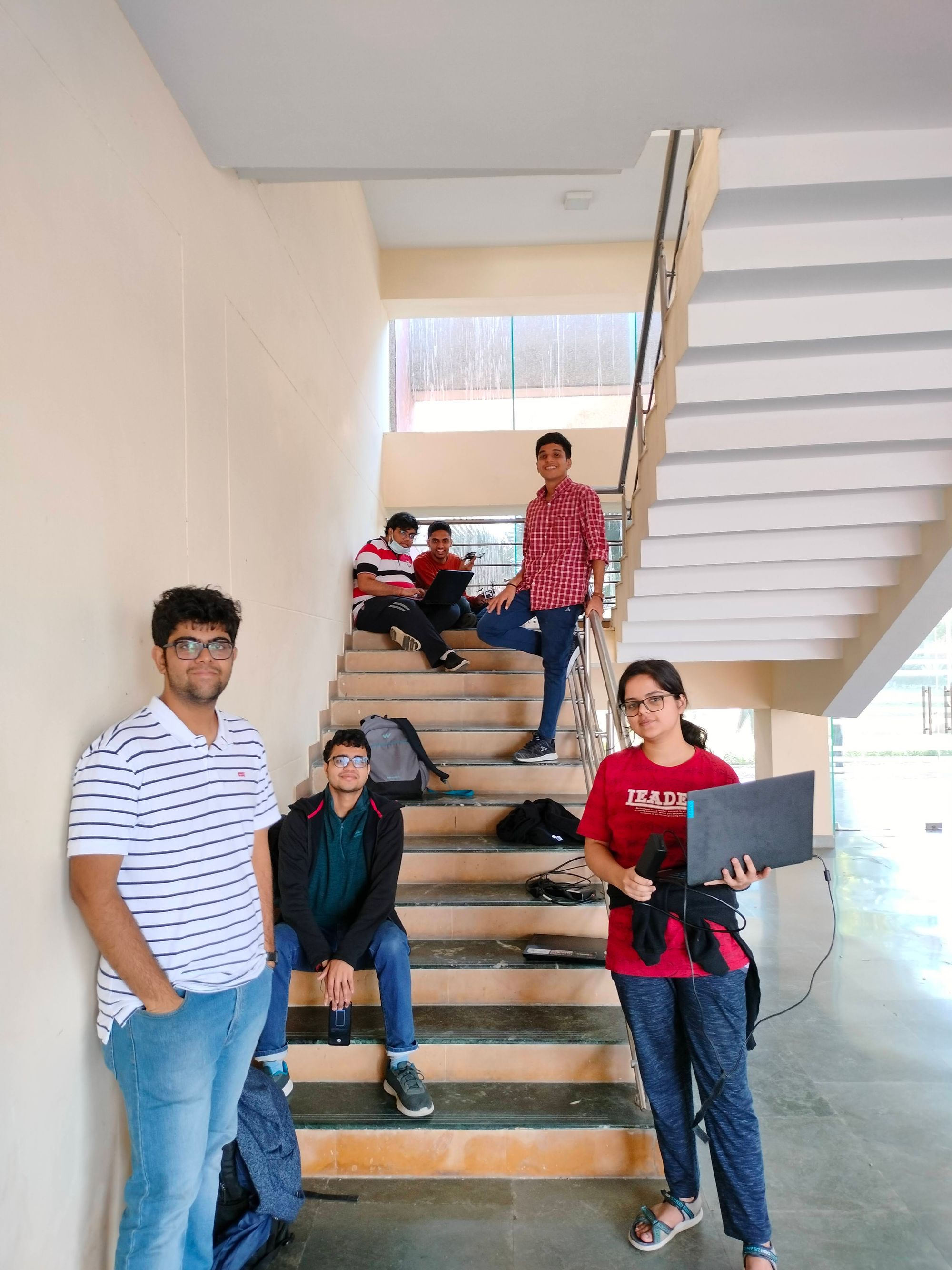
- It’s a fricking rollercoaster - There are events that go super well and then there are others where 0 people show up. My highs were really high and lows were equally painful. I’ve wanted to quit and dump so many times but then there were equally balanced nights of euphoria and adrenaline
- It’s about the team- Investing in the team’s growth during the summer following my recruitment was one of the best decisions I made. Because this strong loyal team stood while we encountered multiple hits over failed early events in the first semester. And now I see the same shy-to-even-turn-on-their-video-camera students stay up 14 straight hours, jugaading food and leading the conduction of tech events on campus.
- Diplomacy is everything - I’ve had to be nice in multiple f-you conversations and taken a lot of sit from multiple participants and stakeholders at a lot of points. Being rational more than emotional, knowing the right words to pitch to the right decision maker for an approval, collaborating with other student bodies for mutual vision alignment - that kind of thing
- The tech community has heart - Tech-community is introverted, reserved and fit the “nerd” description (barring a few outliers). But these are the same people who will pour their heart out for finessing a project - right from scribbling on whiteboards to presenting products, stand by and help each other for free, bond over late night tea conversations and pizzas, fight when they’re sleep deprived and drive real impact to push the society forward. This inspirational set of people is worth fighting for
The Growth
Gigantic network - This is the most golden essence of being in an technology college. I reached out far and wide:
- interacted and connected with the most passionate tech enthusiasts across all domains at my university
- connected to nationwide college's top talent through a joint Tech board
- became part of a top class university entrepreneur community
- multiple companies (GitHub, Unacademy) that sponsored our events
Being a better planner - Every TechSoc event had to be granularly figured out - right from the why, to the domain, to the logistics (approvals, finances, food), marketing plans, grading patterns, feedback loop and process documentation. And prior to that - figuring out which initiatives to run for which target audience and how that tied into the TechSoc vision to provide something to students that they were missing out on.
TechSoc taught me about this more than anything. You have to be a better planner than you ever were when you’re handling over 5 Lakhs of budget and getting around 30-40 things right in stressful weeks.
Becoming a stronger person - A leader is looked up to be a responsible and strong person. But no one is born that way. You learn by getting hit with a brick in the face. I learnt to be resilient, have more patience, lose the fear of crowd handling, stand my ground in hard negotations, take in a lot of negative feedback and deal with some failures. There were a lot of times when I felt like running away from the problem but the beauty of this PoR is that it won’t let you. Even when you’re tired, or tied by administration or resource constrained and super close to giving up. It has definitely increased my self-confidence to stand up to any problem in the world with a - “We’re TechSoc, we’ll figure it out” attitude.
Being part of something bigger - I had a chance to stand for a strong tech culture at my college - even though it sometimes meant being unhealthily altruistic. Looking back, I’ll have not regretted that I spent my last year complaining about not having a strong tech scene at univer. I’ll carry with me the legacy of having led highly passionate believers who wanted to push the limits of what technology can be.
The De-merits
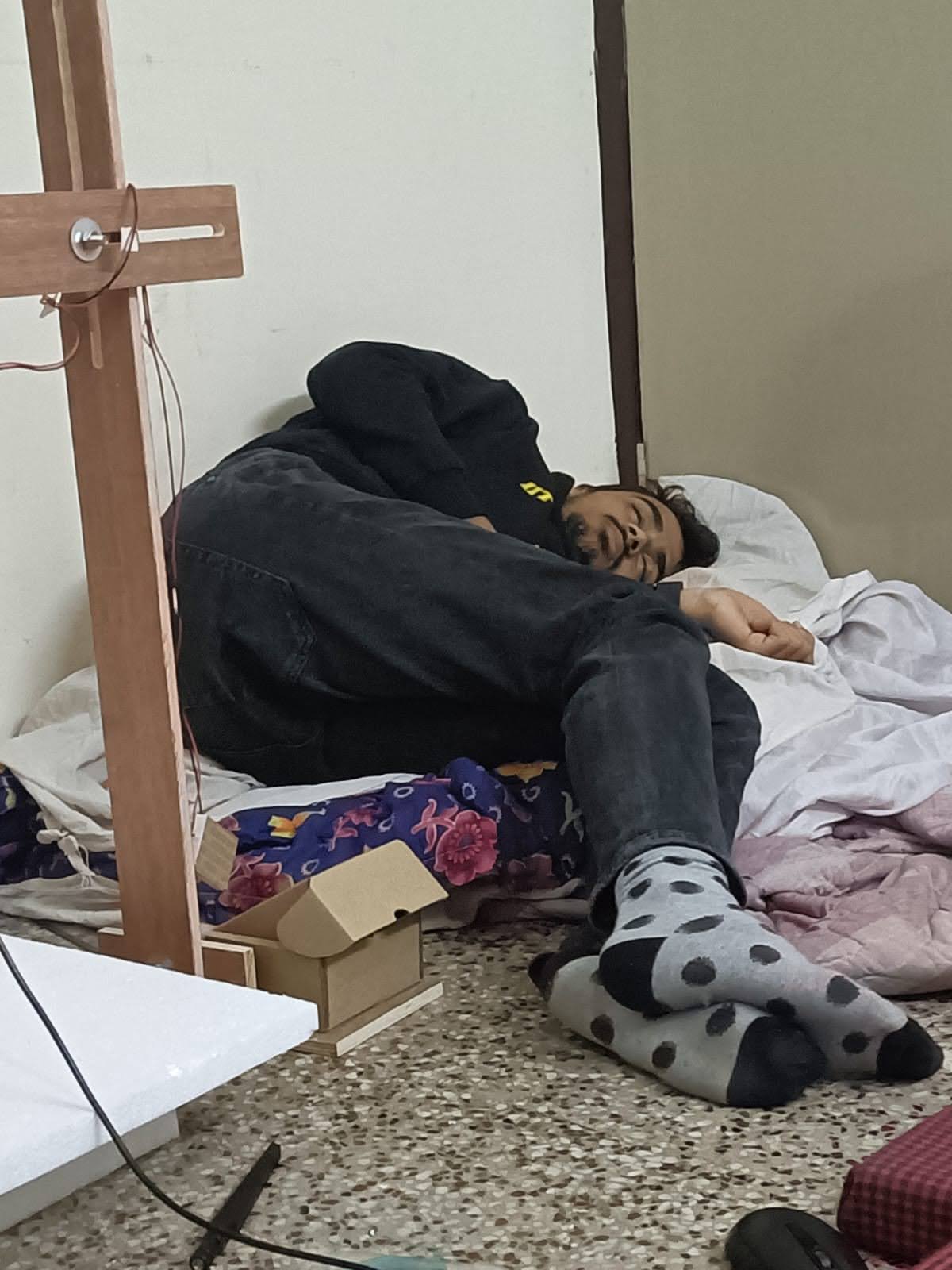
- Constantly stressed - In the early days, especially with the offline shift and even during the competitions, I felt responsible for too many things. It’s an unprecedented level of stress - that no one should rationally take. Passion might be good reason to do it, but not otherwise. You’re worried for an event, a team member’s growth, someone resigning, some plan getting delayed and simultaneously 0 participation in another event on the next day. Since the team is small, unlike other bodies, you’re involved personally in most things and while the growth is good - the cost it comes at, is also high
- Personal sacrifices - Barely any time on most weekends. I remember just bouncing across meetings post 8pm on a lot of weekdays and then standing by the team. I’ve missed a lot of social life, sometimes even personal goals (heck, I didn’t work on my startup during national competitions) and relaxing, as I struggled to move the needles of 3 different verticals whilst the cores were still warming up. The role does take a lot out of you and it’s not a good thing always.
- A lot of ground-work - My leadership style has always been more hands-on. Might be a good or bad thing, I don’t know the balance. There are days when people won’t work upto your standards and you’ll have to step in and help even though you really are just mad and might want to panic and yell at them to get it done. Compassion taught me to share the load - right from being a TShirt distributor to a sweeper to poster designer to food delivery agent.
A crazy story
I'll tell a story of how I learnt persistence. In 2023, I was leading a 90 member contingent from our university to participate in Inter IIT Tech Meet (a national level competition for solving technical challenges). I was managing 15 projects over 2 months and was also in charge of the logistics, travel and accommodation in Kanpur. I booked the train tickets for my contingent through our institute and they assured us of tickets to Kanpur. However, in on the day of travel, amidst 100+ things I juggled all the way upto the train station, I realized that our tickets from Chennai to Kanpur were waitlisted. The train was full and keeping in mind the safety of my team, I told them to get off and said we'd find another way. And so, this story begins with a huge group of people, staring down at me at 12am on a railway station, with hopes that I'd get them to our competition - 2000 miles away - in the next 36 hours.
I arranged for a bus back to the campus and stayed up till 3, trying to figure out how I'd get my team to Kanpur safely, with the limited budget I had. For context, our institute had a no-flight refund policy for competitions. We brainstormed multiple routes via permutations of bus and train but we'd reach late and fatigued. At 3:15am, Shreepoorna found a reasonable flight ticket deal from Chennai to Delhi. At 3:30am, I poured in all my personal savings of about INR 85000 (with a INR 10000 loan) and booked the tickets to Kanpur. Here's the celebration video of that too.
Next, I spent 2 hours breaking it to the 2 people, whose tickets couldn't be booked due to limited funds. At 4am, I was standing at Cauvery Hostel, getting rattled by a junior on how I'd failed my entire purpose as a leader. Returning to my room in a mess, I wrote a long email to the Dean, explaining the situtation before I passed out.
After a 1 hr nap, I woke up in cold sweats, informing our Dean with a long email - the entire situation. 9am, I showed up to their office, shaking. But the admin rallied with us and with their support, got the tickets for the remaining team as well.
After 2 hours we flew to Delhi. In-flight, I worked with the people solving the "entrepreneurship challenge" and got their submission right. Abhishek Gupta (on campus) was making the pitch deck all the way to 12 when we submitted it, before we finally got kicked out of the cafe we made our makeshift office, with just a single coffee order. Next, at Delhi, we haggled and arranged bus transport to Kanpur for all with a 40% discount. Turns out, back then, online bookings weren't considered valid and you had to physically haggle and get people in the bus.
Fun fact, we got screwed over by the bus guys who dropped us about 25km away and once again, stranded on a highway at 7am, our team is bargaining with auto drivers to get us there.
Finally, after the entire long journey, we reached Kanpur campus 10 hours before time. 24 hours after that, with a parched throat, I pitched and won the silver medal for my college at the entrepreneurship challenge. Oh and the savings I put in? I got them reimbursed a month later by tweaking around my cloud provider SaaS costs and showing AWS credits as expenditure (technically, I did lose the money).
This is my favourite story that I like to share as I can neither put it in my resume nor will it be a conventional interview question - but it is so fundamental to my way of working - Persistence. I'd rather sweat in a garage than recline in a cabin. Cause where other's see unconvention, I see genius. "Ones who are crazy enough to think they can change the world, are the ones who really do"
Here's another story blog I wrote about an initiative TechSoc created and ran - to motivate students to believe and build projects - link
Coolest things I got to do
- Organized the 1st paper plane flying contest at my university, with having only semi-permission for the badminton courts
- Revived a culture of building finished products in 10 weeks through BuildSchool
- Earnt a chance to lead the Tech Contingent and shout a war cry on the stage (Actual onstage video - link)
- Grow TechSoc from a “will students show up” body to a “oh cool, they wanna sponsor our event” warrior team
- Connect with all the top Center for Innovation (CFI) talent at university
- Interview and interact with cool founders (Ather, Zepto) during BuildSchool talks
- Buy over 200 pizzas during my tenure (40 of them, during a train journey from Kanpur to Chennai)
- Part of Institute Innovation Council and Inter IIT Tech Board - decision making that can actually drive some change
- Connected with the top startups of insti and alums - Desklamp (now Clueso), Ather, Hyperverge, Corevoice
- Met my co-conspirators to build a software venture with - Prabhat, Jayanth K, Subham - made some money to.
- Free tshirts and appreciation goodies for the work done
- Sorted access to a cool DoSt util, CRC, CLT
- Built a completely automated no-code website
- Revive what I felt tech should feel like, working alongside a team I have grown to love
